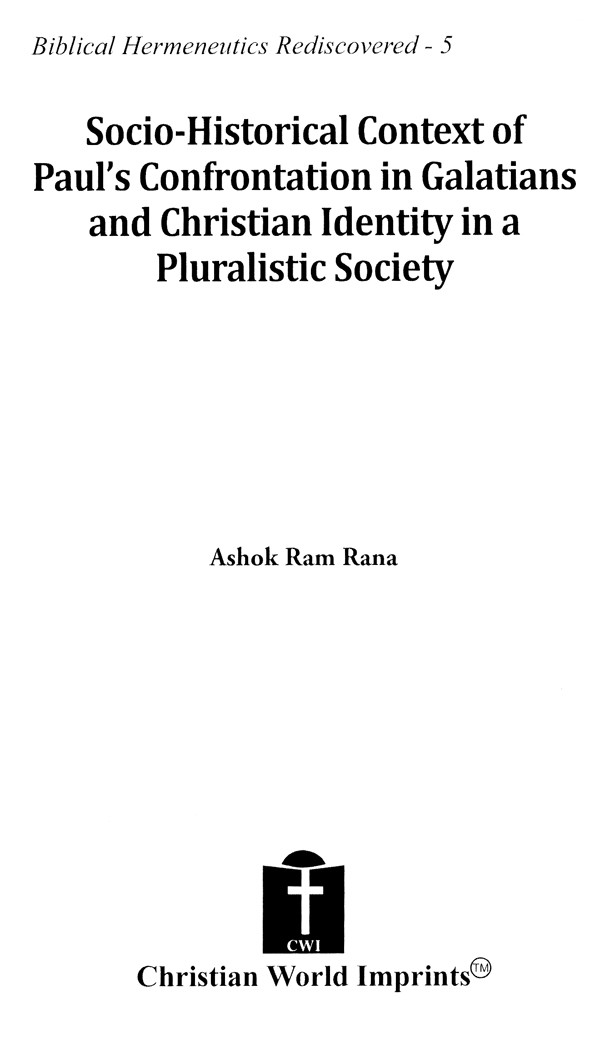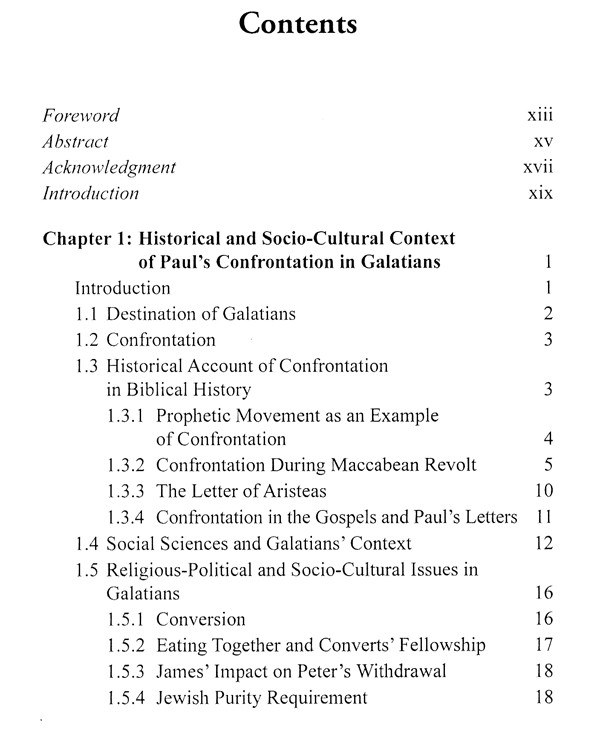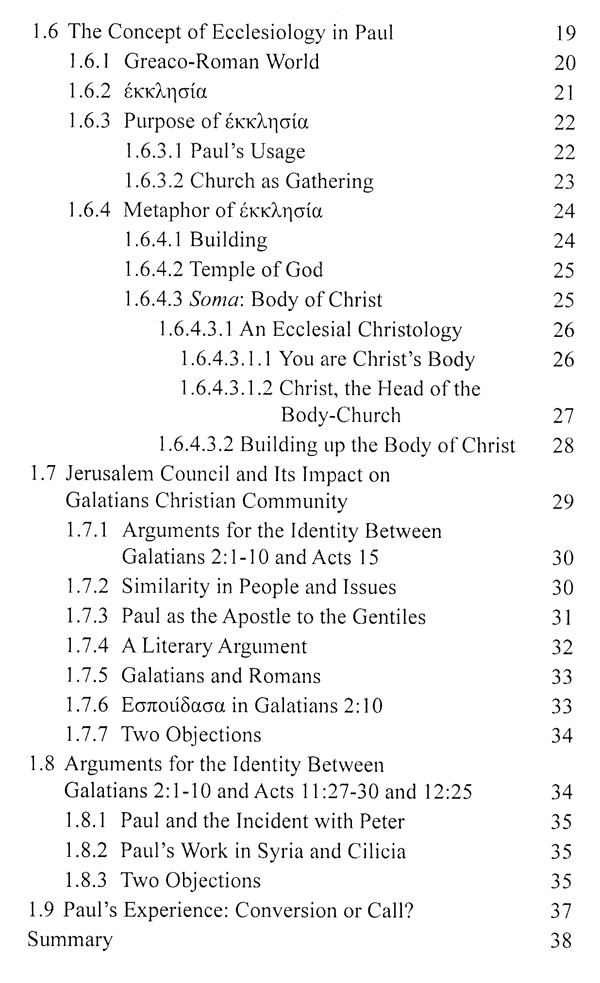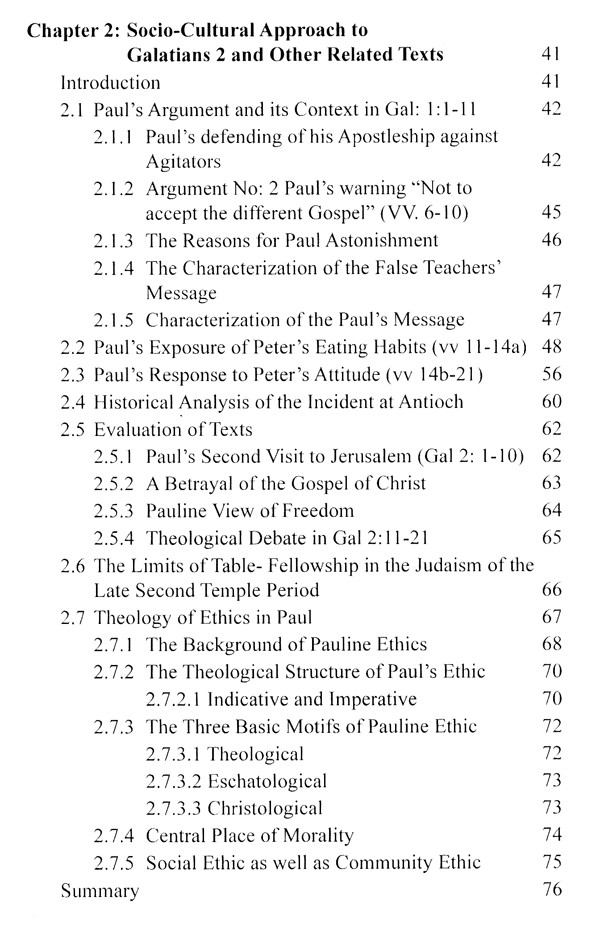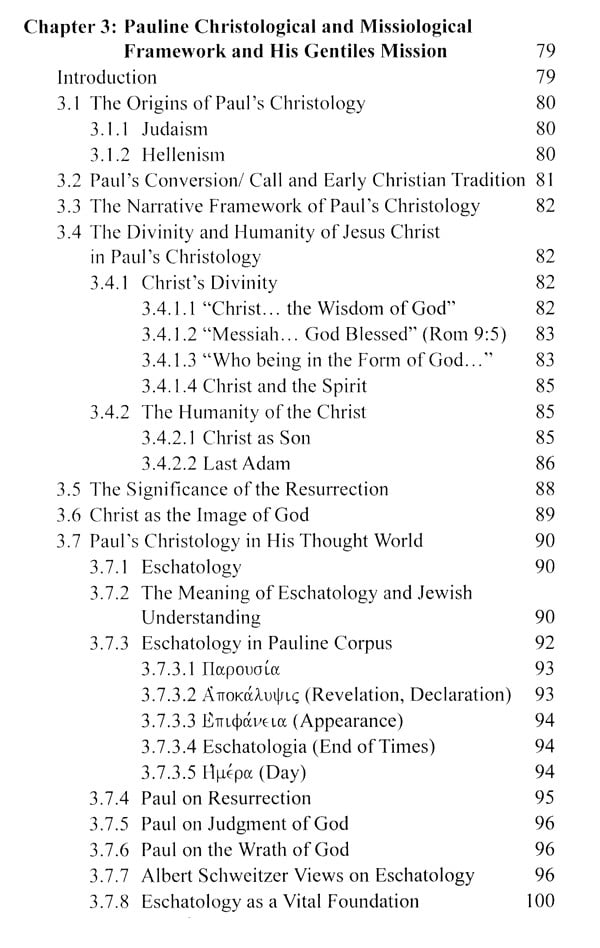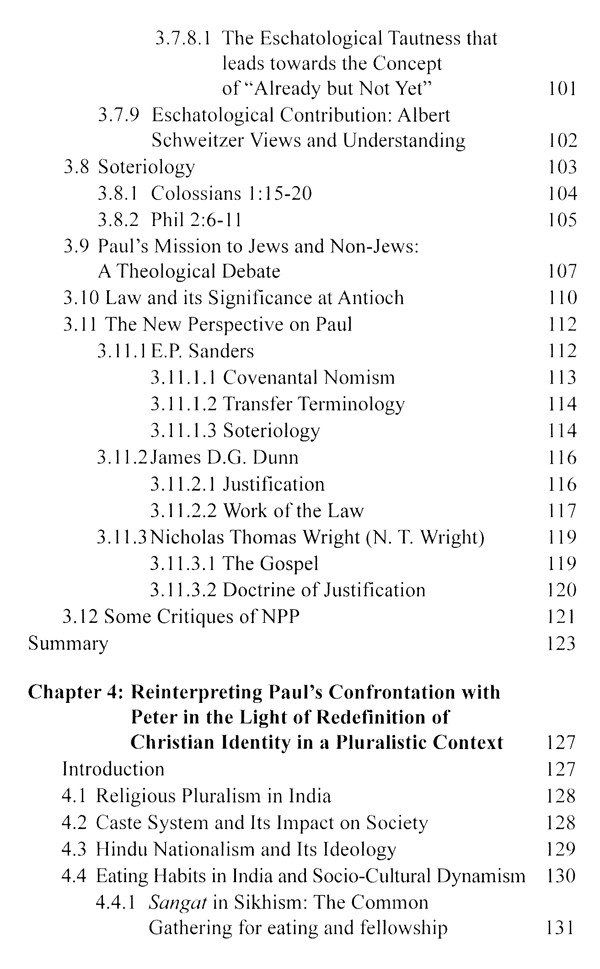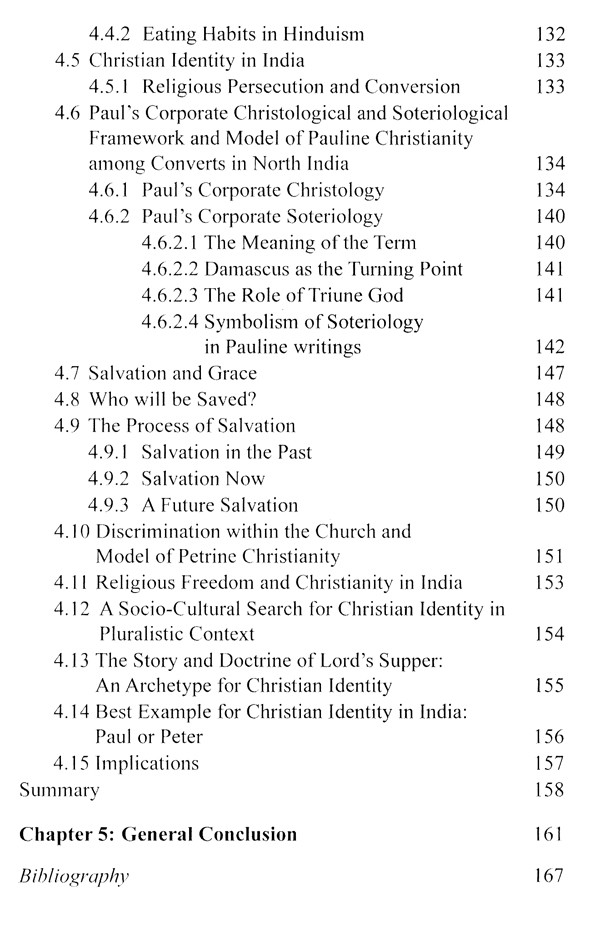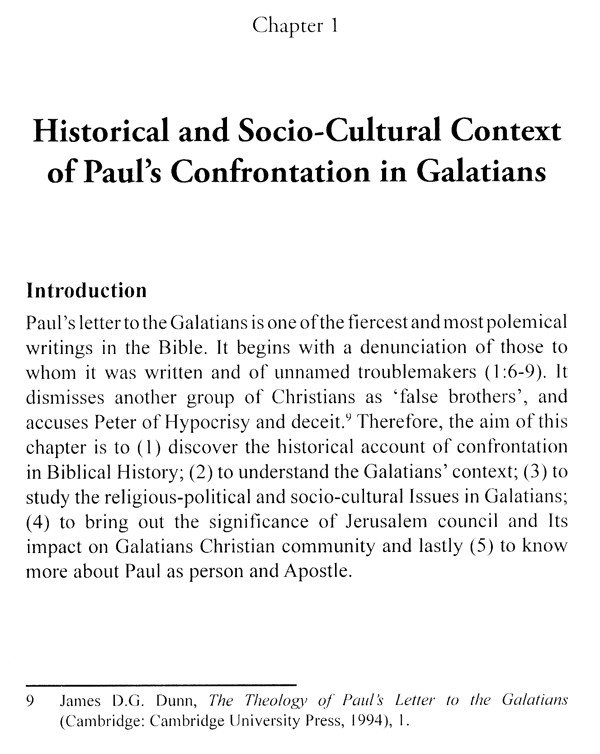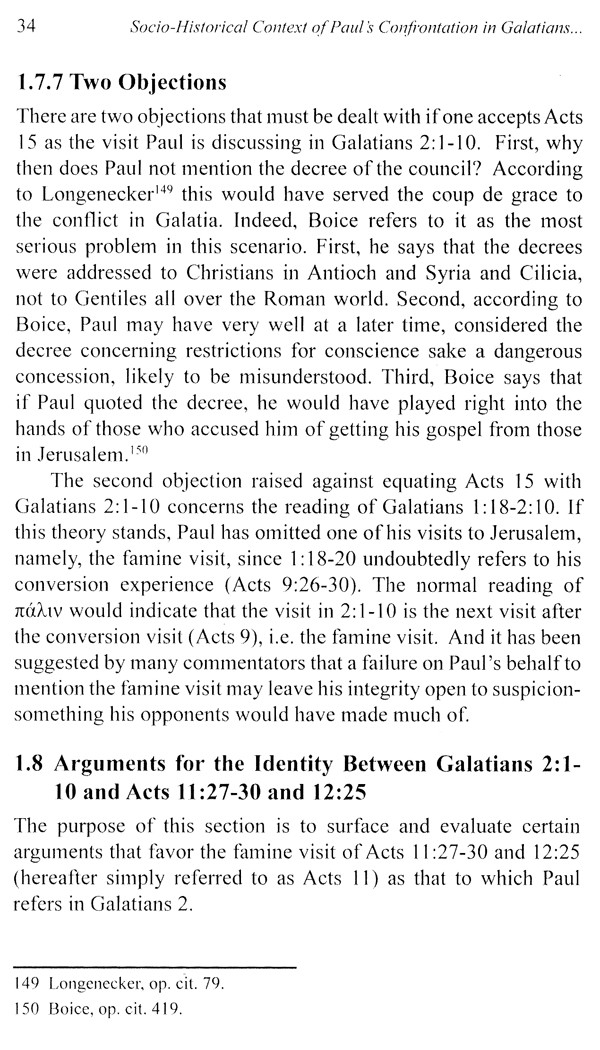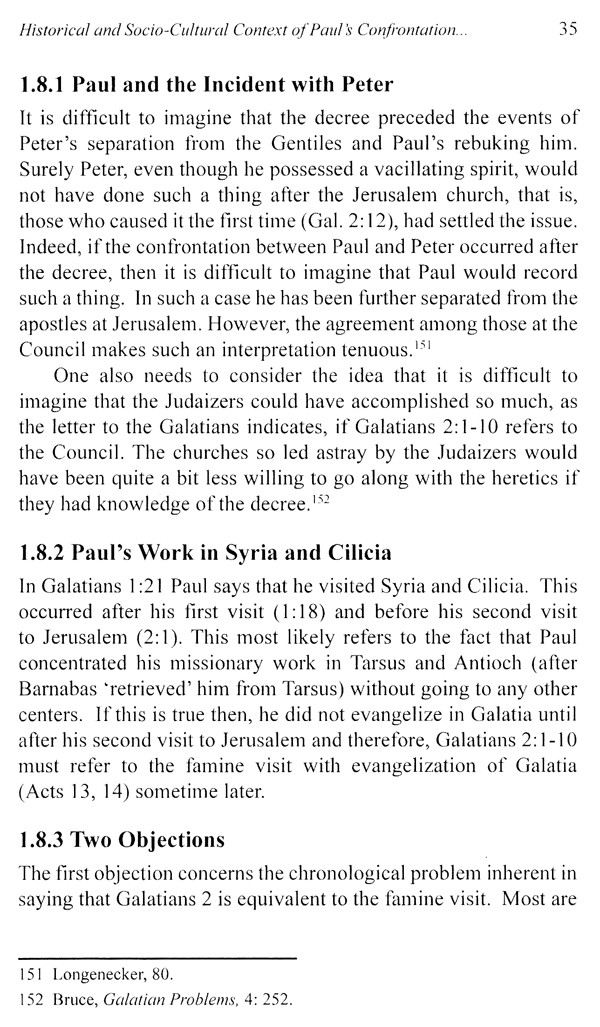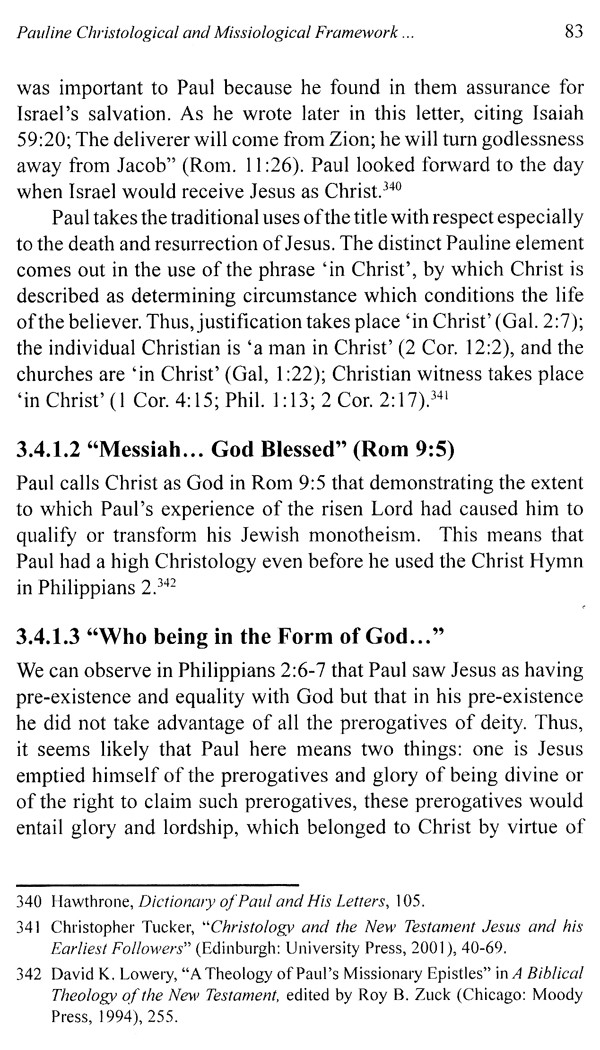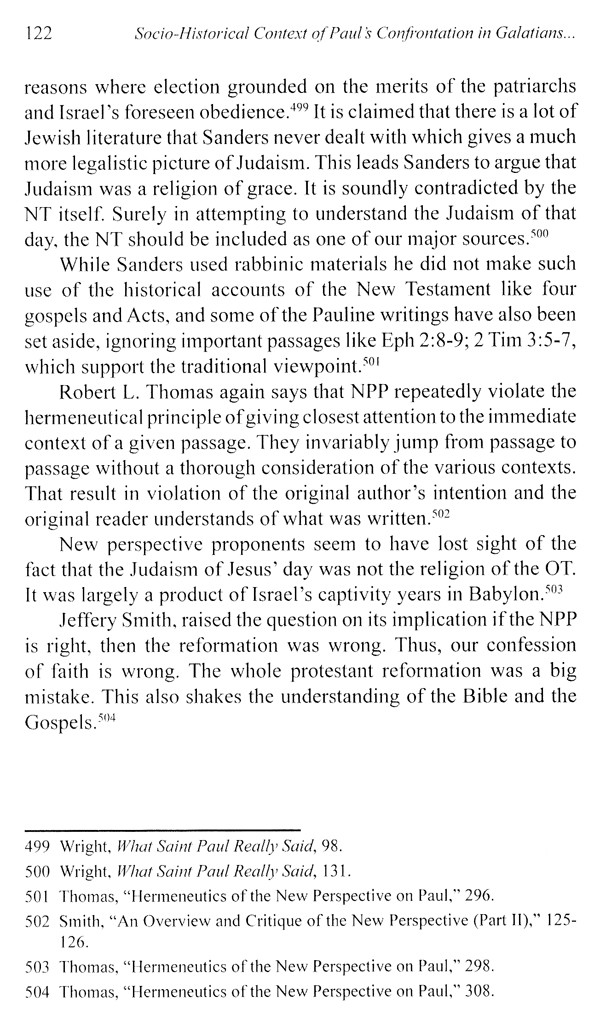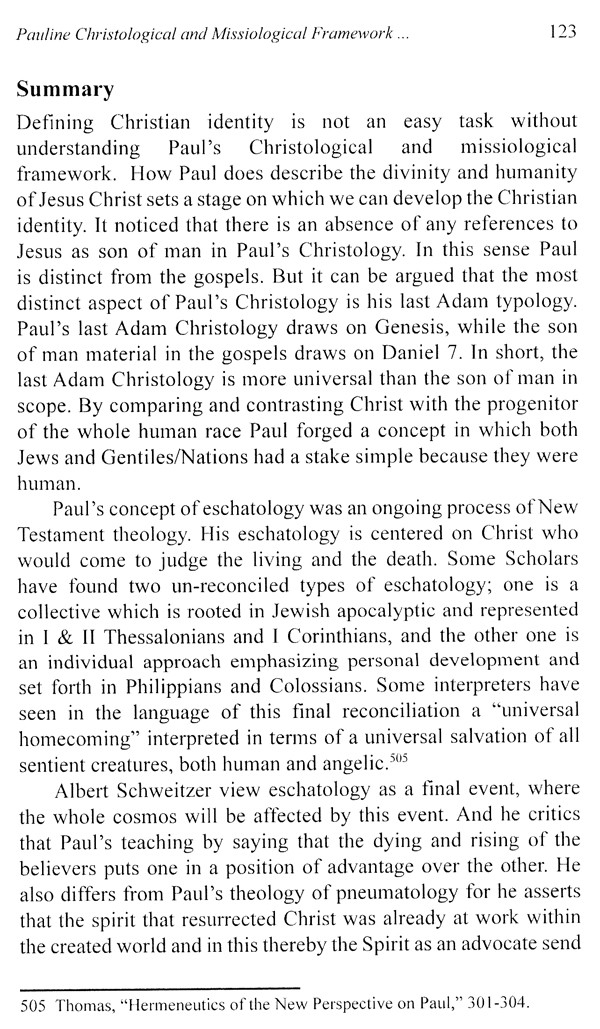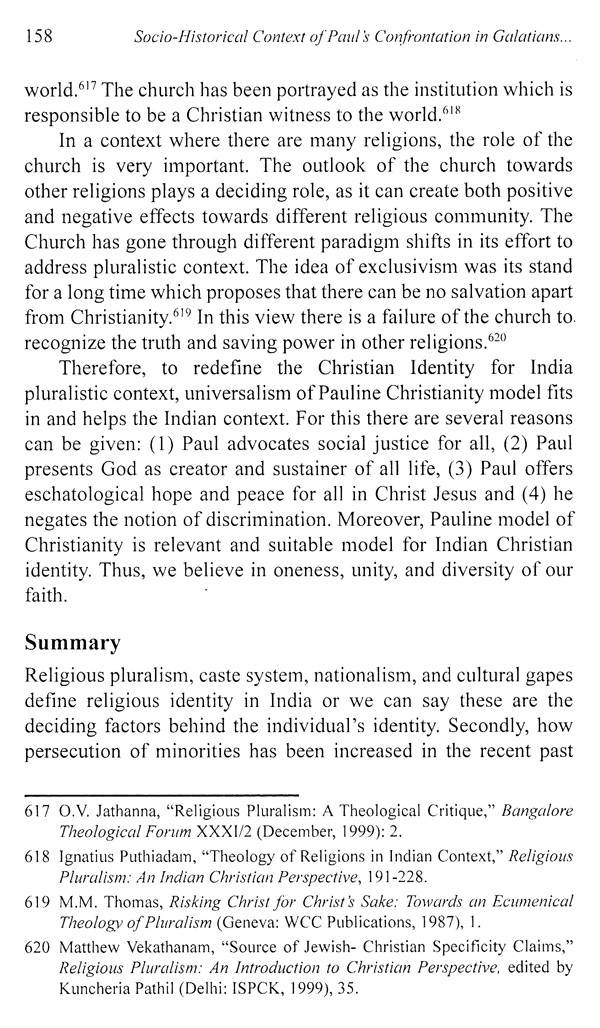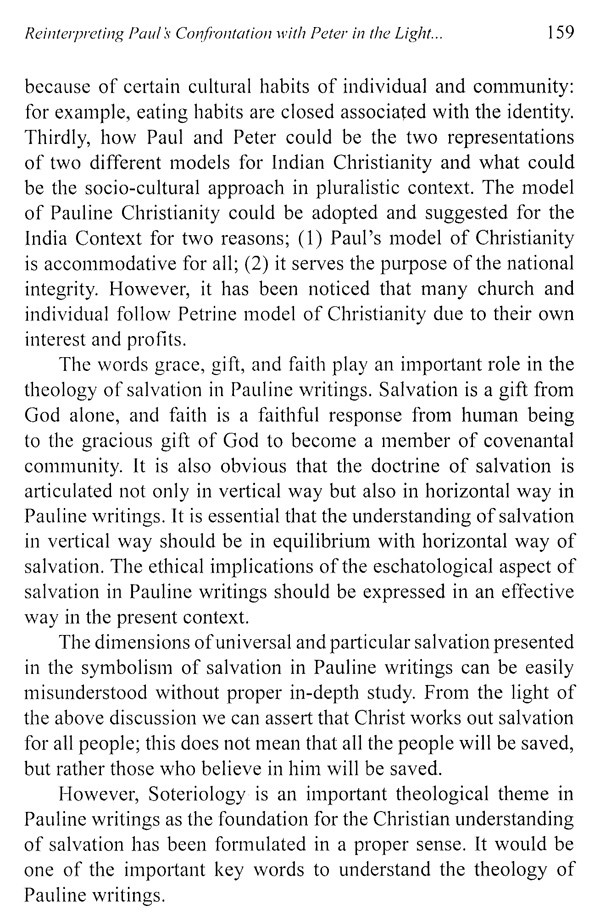
Socio-Historical Context of Paul's Confrontation in Galatians and Christian Identity in a Pluralistic Society
Book Specification
| Item Code: | UAZ634 |
| Author: | Ashok Ram Rana |
| Publisher: | Christian World Imprints, Delhi |
| Language: | English |
| Edition: | 2017 |
| ISBN: | 9789351481928 |
| Pages: | 206 |
| Cover: | HARDCOVER |
| Other Details | 9.00 X 6.00 inch |
| Weight | 430 gm |
Book Description
This book proposes to draw significance of eating together that becomes discernible from the texts. As Paul confronts the issue at Antioch, he stresses certain concerns pertaining to social, religious and ethnic identity in Galatians. Also, Paul's argument focuses on Jewish Law and how does it function in the lives of the both Jewish Christians and non-Jewish Christians.
This book has several purposes: the first objective is to understand why Paul confronted to Peter at Antioch. Secondly, in the setting of Antioch's scene, how Paul emphatically declares both his independence from the Jerusalem apostles and the fact that, when they did meet, they agreed on the substance of the gospel and divided their areas of work. Thirdly, how eating together and socio-culture, religious issues related to it affect the identity of individual and community both in Galatians and Indian Context. Fourthly, to understand Christological and missiological framework of Paul and to relocate and redefine the Christian identity in pluralistic Context based on Paul's Gentile Mission. Finally, who serves the best model/example of Christian identity in India, Paul or Peter?
All of Paul's confrontations and arguments entreat the church as a community of believers in the Lord Jesus Christ where he focuses on individual liberty. The mutual upbuilding and upholding corporate identity as believers in Christ are the main crux of Paul's confrontation with Peter.
Ashok Ram Rana hails from Chimmabass which is located between Saharanpur and Dehradun. He has done M. A. in English literature and after receiving Lord Jesus Christ as personal Saviour, he completed his B.D. and M.TH in New Testament from the United Theological College, Bangalore. Currently, he is teaching in South India Biblical Seminary and serves as a Pastor in Bangalore Evangelical Lutheran Church, Bangalore. He is married to Anita Patil Ram Rana and they are blessed with two daughters; Apoorva Ram Rana and Ashank Ram Rana.
Rev. Ashok Kumar's book Socio-Historical Context of Paul's Confrontation in Galatians and Christian Identity in a Pluralistic Society is a welcome addition to the field of New Testament. Being an enthusiastic researcher, Rev. Ashok has been able to contribute genuinely and creatively. In this book he mainly discusses the issue of identity and constitutive elements of mission in a religiously pluralistic context. In Galatians, Paul discusses the question of religious identity by taking the then socio-political milicu seriously.
The religious identities of the migrants in the case studies should be seen as an indication to the complex nature of religious identity today. The destructive power of social hierarchy often demolishes the dreams and aspirations of the people on the edges. However, it is the responsibility and task of the genuine religious communities to uphold the dignity and status of human community.
The ministry of publication is very important as part of knowledge activism in India as our context is indeed a challenging one. May God continue to use Rev. Ashok to write more books to strengthen the New Testament scholarship in India.
Background of the Research
The tension between Jews and Gentiles is a well-recorded and gravid debate within the field of biblical exegesis today. In Galatians' context why the theology behind Paul's confrontation of Peter and Peter's attitude is understood as a dilemma among the New Testament Theologians? Was the withdrawal from "Eating Together" with Gentiles of Peter was grounded on the appropriate. reasons which might be circumcision, Jewish purity requirements or fear of identity? Why Peter was afraid of such extremists in Antioch, when he was prepared to bread with them in Jerusalem, is a problem that cannot be explained without remembering our own psychological "kinks"? Who serves the best example of Christian Identity in pluralistic context; Paul or Peter? It is in this light, this study attempts to exegetically analyze Paul's confrontation of Peter, Peter's attitude and redefine the Christian identity in a pluralistic context.
An Elaboration
One of the biblical passages that directly relates to this special situation, often labelled the "incident of Antioch" in Gal 2.11-21. In this passage Peter (Cephas), an early disciple of the Jesus movement that regularly ate and drank with the Gentiles, is told to draw back and sit in isolation as soon as an orthodox (Jewish) 'fraction of circumcision' (the party of James) arrives from Jerusalem. The struggle lies in the traditional view that this withdrawal represents a conflict between early Christianity (Paul) and Judaism (James) -by many different scholars and distinguished names within the exegetical community commonly held opinion.**Contents and Sample Pages**
